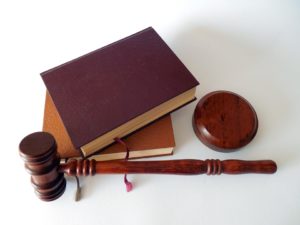The Necessity Defense in a DUI case
The Necessity Defense in DUI cases
One defense allows justification of drunk driving, if there was a compelling enough reason to break the law. A person can be found not guilty of DUI if they had a valid reason for driving drunk. This page discusses the Necessity Defense in DUI cases.
What is the Necessity Defense?
The definition of necessity is that the action, which was illegal, was a necessity, in order to prevent a greater evil. The harm the defendant wanted to avoid outweighs the danger of the prohibited conduct the person is charged with.
The necessity defense has been part of historical common law, so it’s been a part of the law for a long time. In the earliest case, it was used to defend a trespass charge, when it was shown that the defendant had trespassed on the property to save a life. Committing the trespass thus avoided the danger of death to another.
What does the law require to prove the Necessity Defense in a DUI case?
At trial, if a defendant is asserting the necessity defense, to excuse a charge of driving under the influence, the jury deciding the case will be instructed exactly as follows:
The defendant is not guilty of <insert crime[s]> if (he/she) acted because of legal necessity.In order to establish this defense, the defendant must prove that:– 1. (He/She) acted in an emergency to prevent a significant bodily harm or evil to (himself/herself/ [or] someone else);– 2. (He/She) had no adequate legal alternative;– 3. The defendant’s acts did not create a greater danger than the one avoided;– 4. When the defendant acted, (he/she) actually believed that the act was necessary to prevent the threatened harm or evil;– 5. A reasonable person would also have believed that the act was necessary under the circumstances;AND– 6. The defendant did not substantially contribute to the emergency.
The defendant has the burden of proving this defense by a preponderance of the evidence. This is a different standard of proof than proof beyond a reasonable doubt. To meet the burden of proof by a preponderance of the evidence, the defendant must prove that it is more likely than not that each of the six listed items is true.
So When does the Necessity Defense apply in a DUI case?
How is the Necessity Defense asserted in a case?
Any DUI specialist would be able to assert proof of a necessity defense to the prosecutor as part of the plea bargain process during a pretrial in the case. That may be enough to have the prosecutor agree to dismiss the case, or offer to reduce the charges.
However, as mentioned above, it is considered a trial defense. At trial, the jury can be instructed on how necessity excuses a DUI, and that they could find the defendant not guilty of the crime of DUI or related charges, if the necessity defense is proven.
Contact Us Now – Let’s Get Started.


